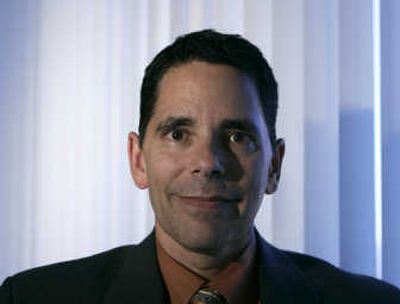Officer criticizes tribunals

SAN JUAN, Puerto Rico – An Army officer who played a key role in the “enemy combatant” hearings at Guantanamo Bay says tribunal members relied on vague and incomplete intelligence while being pressured to rule against detainees, often without any specific evidence.
His affidavit, submitted to the U.S. Supreme Court and released Friday, is the first criticism by a member of the military panels that determine whether detainees will continue to be held.
Lt. Col. Stephen Abraham, a 26-year veteran of military intelligence who is an Army reserve officer and a California lawyer, said military prosecutors were provided with only “generic” material that didn’t hold up to the most basic legal challenges.
Despite repeated requests, intelligence agencies arbitrarily refused to provide specific information that could have helped either side in the tribunals, according to Abraham, who said he served as a main liaison between the Combat Status Review Tribunals and the intelligence agencies.
“What were purported to be specific statements of fact lacked even the most fundamental earmarks of objectively credible evidence,” Abraham said in the affidavit submitted on behalf of a Kuwaiti detainee, Fawzi al-Odah, who is challenging his classification as an “enemy combatant.”
Abraham’s affidavit “proves what we all suspected, which is that the CSRTs were a complete sham,” said a lawyer for al-Odah, David Cynamon.
The Pentagon defended its process of determining which detainees should continue being held, but didn’t address Abraham’s criticism
“The CSRT process is fair, rigorous and robust,” said Navy Lt. Cmdr. Chito Peppler, a Defense Department spokesman. “We welcome dialogue and fact-based discussion” in the military tribunal hearings, he added.
Abraham said he first raised his concerns when he was on active duty with the Defense Department agency in charge of the tribunal process from September 2004 to March 2005 and felt the issues were not adequately addressed. He said he decided his only recourse was to submit the affidavit.
“I pointed out nothing less than facts, facts that can and should be fixed,” he told the Associated Press in a telephone interview from his office in Newport Beach, Calif.
The military held Combatant Status Review Tribunals for 558 detainees at the U.S. Naval Base at Guantanamo Bay in 2004 and 2005, with handcuffed detainees appearing before panels made up of three officers. Detainees had a military “personal representative” instead of a defense attorney, and all but 38 were determined to be “enemy combatants.”
Abraham was asked to serve on one of the panels, and he said its members felt strong pressure to find against the detainee, saying there was “intensive scrutiny” when they declared a prisoner not to be an enemy combatant. When his panel decided the detainee wasn’t an “enemy combatant,” they were ordered to reconvene to hear more evidence, he said.
Ultimately, his panel held its ground, and he was never asked to participate in another tribunal, he said.